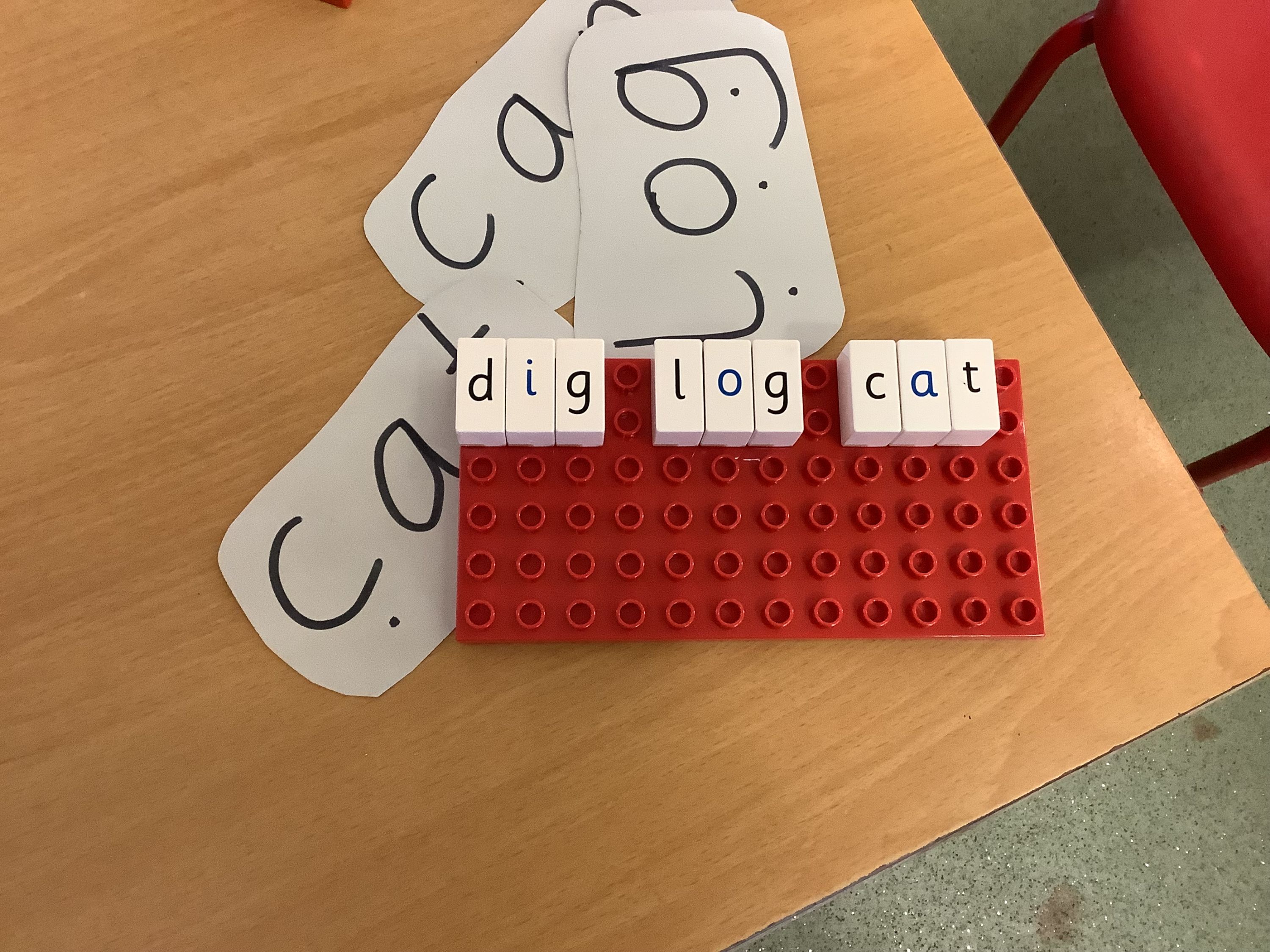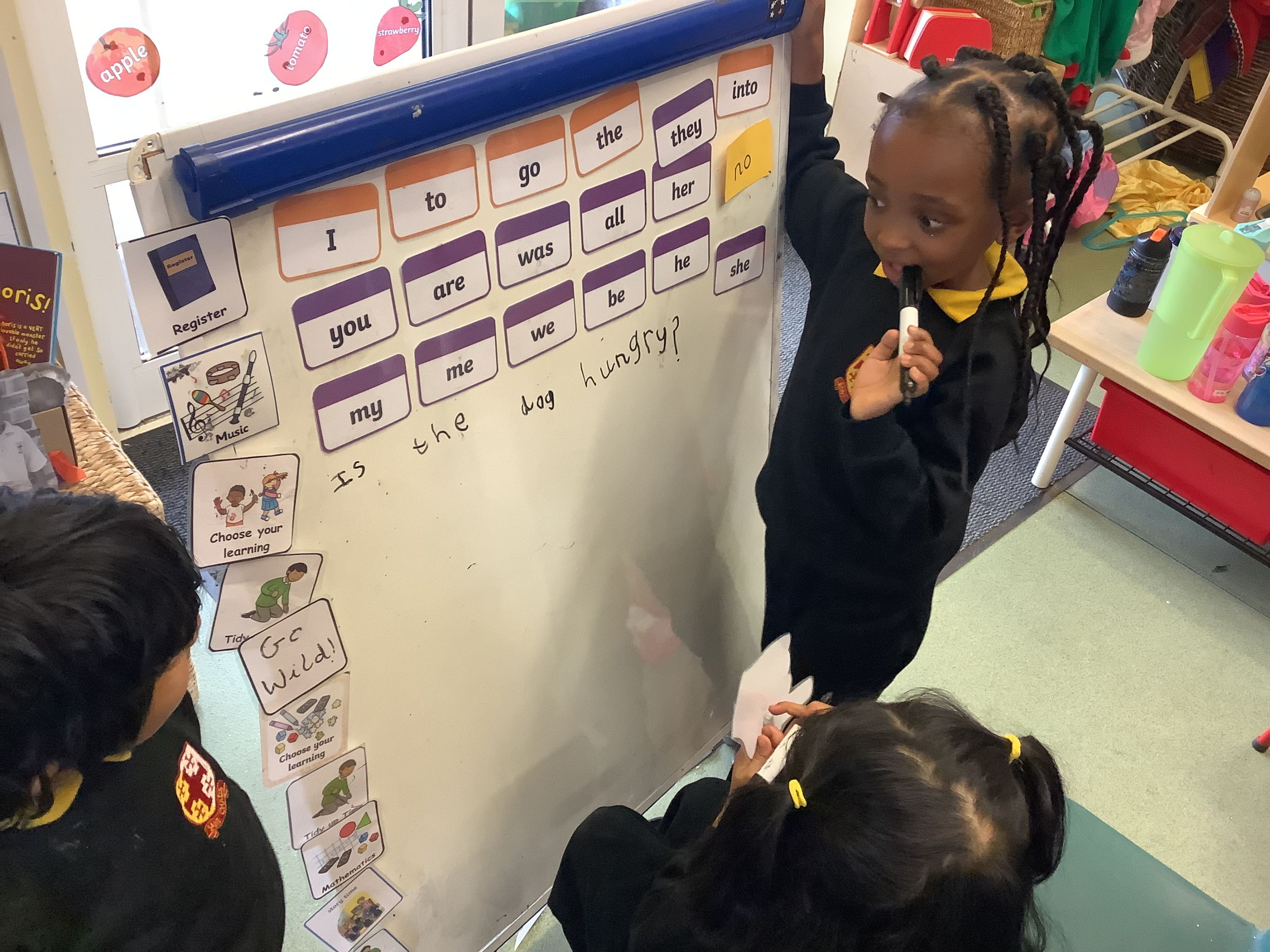Phonics

Phonics Intent, Impact and implementation statement
We aim to create
Successful, Life-long, Readers
Intent
At St Chad’s, we are passionate about ensuring that all children become confident and enthusiastic readers and writers. Reading is a key life skill, and we are dedicated to enabling our pupils to become lifelong readers. This begins with the foundations of acquiring letter sounds, segmenting and blending skills. Our teaching of phonics is systematic and ensures that all children develop proficiency in recognising and blending all 44 of the phoneme/grapheme correspondences in their reading and use this knowledge to support their writing. We provide many opportunities for our children to practise and apply their phonic learning when reading and writing across our curriculum. Phonics is the initial ‘key’ to helping our children open the door to a world of potential and possibilities…
Implementation
We follow the Unlocking Letters and Sounds scheme, starting in EYFS and moving through KS1. Some children also have catch-up phonics interventions in KS2. Phonics is delivered daily by the class teacher to the whole class in reception and KS1. In Year Two phonics is taught for the first term, after which the children move onto additional spelling and grammar lessons. Nursery children have a weekly phonics session. Each session focusses on hearing and saying a different Phase 2 phoneme. In addition to this, a lot of time is spent on Phase 1 activities in both the continuous provision and teaching inputs. Across EYFS there are designated phonics areas where the phoneme/s of the week are displayed and a corresponding activity is provided to help embed their new learning.
Unlocking Letters and Sounds offers a comprehensive scheme that incorporates all the phoneme/grapheme correspondences of the English language, alongside the common exception words and opportunities to apply these skills in reading and writing. There is also a focus on widening the children’s vocabulary, and they are introduced to less common words frequently as part of their daily lessons. This focus on language is particularly important for many of our pupils who have limited vocabulary and understanding.

It is essential for our children to have plentiful opportunities to practise and apply their phonics skills. We use the Reading Stars Phonics reading scheme which links with Unlocking Letters and Sounds. This allows the children to practice newly taught graphemes, alongside their phonics lessons. The books are used for 1.1 reading, and at home. All the books are fully decodable and banded by phonics phase, enabling us to match each child to a suitable text which will challenge but not overwhelm them. The scheme offers a broad range of texts, both fiction and non-fiction, with engaging illustrations and real-life photographs. Consequently, our children are motivated to apply their phonics as they engage with high-quality texts.
As well as 1:1 reading books, we also use the Unlocking Letters and Sounds guided reading sets from reception to year two. These are designed to be read more than once to help equally focus on decoding skills, fluency, prosody and comprehension. Each set comes with a carefully designed plan to help teachers deliver this successfully.
In order for our phonics system to be effective, we must continuously monitor and evaluate the impact it has on our children’s reading and writing abilities. Formal monitoring takes place termly. Children’s attainment in phonics is tracked specifically alongside reading and writing. This enables us to identify those children whose progress has stalled. Our approach is ‘keep up’ not ‘catch up’. Targeted interventions and additional phonic sessions are then delivered quickly to help close any gaps. In year one, additional and regular PSC assessments are made throughout the year enabling teachers to track the children’s individual progress.
Impact
Through the consistent, systematic and daily teaching of the Unlocking Letters and Sounds programme, our aim is for children to become fluent, confident readers by the end of KS1. When the children sit their end of Key Stage assessments and PSC in year one, they will be able to use their secure understanding of the phoneme/grapheme correspondences to confidently decode unfamiliar words and also recognise many words on sight. In addition to this, we know that fluent reading unlocks a wealth of learning and so the impact of our phonics and reading curriculum goes beyond the results of statutory assessments.
The Unlocking Letters and Sounds programme will equip children with the skills to decode unfamiliar words using strategies that they have been taught in their daily lessons. Our approach of ‘Sticky Knowledge’ and constant repetition help our children to retain what they learn in phonics lessons to apply in their reading and writing. With the mastery of this basic skill, our children can move onto solely focusing on developing their fluency and comprehension as they move through the school. This will lead to a love of reading and taking pleasure in exploring the rich literary world around them with a firm foundation provided by phonics.

